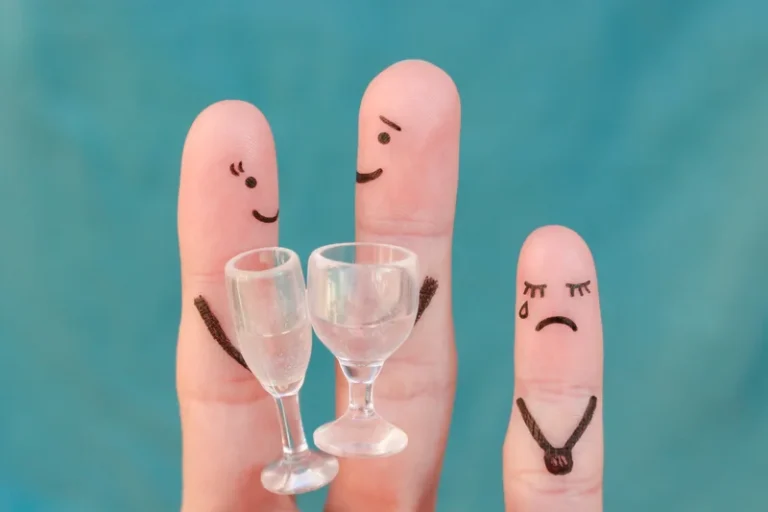
If left untreated, addiction can lead to serious physical and mental health effects, including death. Alcohol withdrawal can come with life-threatening symptoms, such as seizures and cardiac complications. For this reason, it’s highly recommended that you opt for detoxification in a rehabilitation center. This will ensure you’re supervised at all times, and someone can assist if you have a medical emergency. As your symptoms begin to subside, your team will focus on helping you recover from the stress that your body has just undergone. The focus of care will shift to include strategies for coping with cravings and maintaining sobriety.
Mental Health Treatment
- These symptoms can range from mild discomfort to potentially fatal conditions like seizures or delirium tremens.
- It’s also important to note that delirium tremens can be life-threatening.
- It’s meant to explain why getting medical help for withdrawal isn’t just about comfort – it’s about safety.
- Our personalized alcohol rehab is designed to minimize withdrawal discomfort, address co-occurring mental health conditions, and pave the way for lasting recovery.
- As you reach the 24-hour mark, your symptoms will typically intensify.
- It’s possible for some symptoms, like racing thoughts, fatigue, mild insomnia, and delayed reflexes, to last several weeks, but most of these are manageable with treatment.
Similarly, 90-day rehab programs can range from $12,000 to $60,000. When the alcohol level in your system suddenly drops, your brain stays in this overactive state. People who drink daily or almost every day should not be left alone for the first few days after stopping alcohol. Withdrawal symptoms can quickly go from a bad hangover to a serious medical situation. During the 12- to 24-hour time frame after the last drink, most people will begin to have noticeable symptoms. These may still be mild, or the existing symptoms might increase in severity.
24 Hours
With alcohol out of the equation, though, these chemicals cause withdrawal symptoms. Over time, however, the body builds a tolerance to alcohol, and a person may have to drink more and more to get the same feeling. Meanwhile, the brain is producing more and more neurotransmitters, making a person further imbalanced. But while the FDA has approved three such treatments, they are “underutilized” for reasons including stigma and a lack of awareness, he says. No matter what you’re dealing with there are people who can help.
First Six to Twelve Hours
Whether you are struggling with addiction, mental health or both, our expert team is here to guide you every step of the way. Don’t wait— reach out today to take the first step toward taking control of your life. When alcohol use stops, the GABA receptors are still less sensitive but are no longer constantly overstimulated by the presence of alcohol. This means they will be less active than they normally would.
What is the prognosis for someone with alcohol withdrawal?

Symptoms of alcohol withdrawal tend to peak 24 to 72 hours after your last drink. It affects about 50% of people with alcohol use disorder who stop or significantly decrease their alcohol intake. AUD is the most common substance use disorder in the U.S., affecting Drug rehabilitation 28.8 million adults. Minor withdrawal symptoms usually begin about six hours after your last drink.

Social effects

People with Alcohol Detox alcohol use disorder should be monitored by a medical professional when withdrawing from alcohol. Moderate to heavy drinkers can also benefit from medical supervision in the acute withdrawal stage. You don’t need to be diagnosed with alcohol use disorder in order to quit drinking. If alcohol is interfering with your health or your personal, financial, or professional life, consider quitting. If you think you might have an alcohol use disorder, there are evidence-based treatment options that can help you to quit drinking.
This is typically the first step in a comprehensive treatment plan for alcohol use disorder. Alcohol detox should be performed under medical supervision, as withdrawal can trigger dangerous symptoms. Approximately 50% of individuals with a diagnosable alcohol use disorder (AUD) will experience alcohol withdrawal symptoms. For around 20% of these individuals, withdrawal can escalate to severe and life-threatening conditions, such as hallucinations, seizures, and delirium tremens (DT). We publish material that is researched, cited, edited and reviewed by licensed medical professionals. The information we provide is not intended to be a substitute for professional medical advice, diagnosis or treatment.
- Individuals take therapy to learn what leads them to addiction and what their triggers for drinking are.
- This adjustment can throw off normal brain activity, sometimes leading to seizures.
- This is when symptoms are the most severe, and some people experience panic attacks at this stage.
- By the time you’ve completed your first week of detox, many of the withdrawal symptoms will begin to taper off.
How Much Do I Have to Drink to Experience Withdrawal?

As you prepare your plan to quit drinking, make a list of the barriers that might be standing in your way and brainstorm ways to deal with these problems. Potential solutions might include looking for low-cost treatment options, joining a support group, and talking to a mental health professional. Many different withdrawal symptoms may occur during alcohol detox. In the first few hours after stopping alcohol use, you may experience shaking hands, perspiration, nausea, and panic. Hallucinations, epileptic attacks, and delirium tremens (DTs), marked by disorientation and extreme agitation, might appear as detox continues.

You’re likely to experience a lot of stress and anxiety during detox, but exercise generates endorphins that help alleviate these feelings. Modest exercise performed on a regular basis can boost your mood and self-esteem and promote stress management. https://ecosoberhouse.com/ For more information, contact an admissions navigator at AAC today by calling any time, 24/7. We are here for you as you take the first step towards sobriety.

